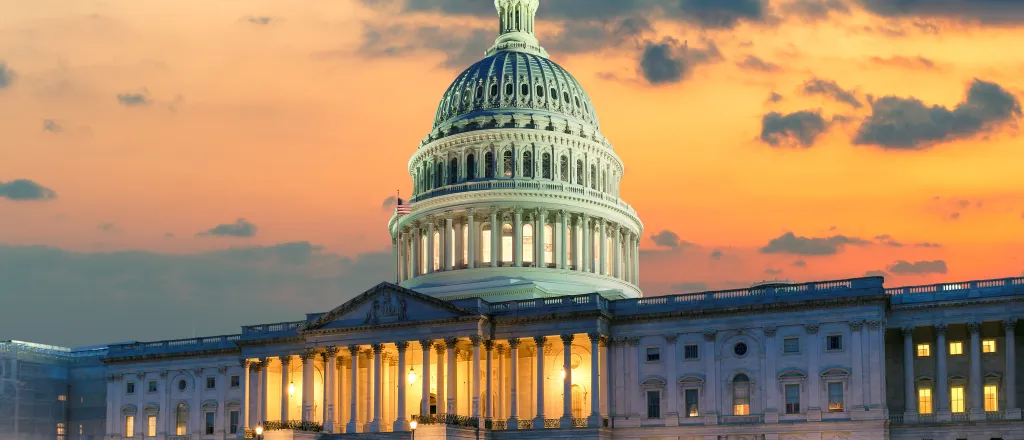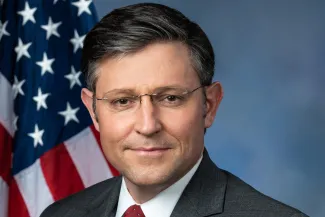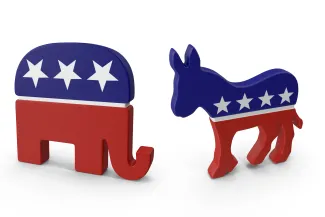
New stopgap bill in Congress would postpone shutdown deadline to December
(Colorado Newsline) Congress is on track to approve legislation this week that will give lawmakers until mid-December to broker agreement on the annual government funding bills that were supposed to become law before the end of this month.

The stopgap spending bill, also known as a continuing resolution, has the broad bipartisan support it needs to move through House and Senate votes this week, though senators will need to reach agreement to vote on the legislation before the October 1 deadline when federal spending runs out.
The 49-page bill, released Sunday after weeks of stalemate as House Republicans went at it alone, is no guarantee that Congress will actually wrap up its work on the full-year bills during the next 12 weeks left before this session of Congress is over, since lawmakers can pass as many stopgap spending bills as they want.
Continuing resolutions essentially extend current spending levels and policy for a set amount of time. They are intended to give the House and Senate additional time to conference final versions of the dozen full-year spending bills.
November 5 election and the lame duck
The election results will likely determine whether the Republican House and Democratic Senate move to reach agreement on the full-year bills during the lame-duck session that will begin after Election Day, or kick the can down the road into next year, when the balance of power could be substantially different.

Speaker Mike Johnson, a Louisiana Republican, appears inclined toward wrapping up work on the full-year appropriations bills in December, saying during a press conference Tuesday that lawmakers would deal with funding decisions during the lame-duck session.
Johnson signaled that he’s going to try to move all the final, conferenced spending bills across the floor one by one, as opposed to bundling all 12 together in an omnibus or packaging several of the bills together in what’s called a mini-bus. Such large bills regularly draw opposition from conservative Republicans.
“We have broken the Christmas omni and I have no intention of going back to that terrible tradition,” Johnson said. “We don’t want any buses, we’re not going to do any buses.”
The stopgap spending bill Congress is expected to approve this week would set the next deadline for government funding on Dec. 20, four days before Christmas.
Senate and House both struggle
Johnson also laid the blame for Congress not completing work on the full-year government funding bills at the feet of Senate Democrats, arguing that the House did all of its work.
The Senate Appropriations Committee approved 11 of the dozen appropriations bills with broadly bipartisan votes, but was unable to garner consensus on the Homeland Security spending bill.

© fitimi - iStock-528483210
None of those bills have come up on the Senate floor for votes, in part, because it can take weeks in that chamber to move spending bills through the amendment process.
The House Appropriations Committee reported its dozen bills out along party-line votes, without the Democratic support that would be needed for the bills to actually become law during divided government.
House Republican leaders passed five of the bills across the floor, including Defense, Homeland Security, Interior-Environment, Military Construction-VA and State-Foreign Operations.
House GOP leaders attempted to pass the Legislative Branch bill, which provides funding for Congress and its associated agencies, but were unsuccessful. House rules allow that chamber to debate and hold votes on bills in a matter of hours, a much faster pace than the days or weeks it often takes the Senate.
Neither Senate leaders nor House leadership have made any effort to conference the full-year spending bills, a process that is needed to reach the bipartisan, bicameral versions that must pass if Congress wants to avoid another stopgap spending bill in December.
The process typically takes at least six weeks, and with both chambers set to leave town at the end of this week for a six-week break, there likely won’t be enough time to conference all the bills before the mid-December deadline that will be set by the continuing resolution.
‘Stay away from poison pills’
Senate Majority Leader Chuck Schumer, a New York Democrat, criticized Johnson for trying to pass a six-month stopgap spending bill through the House earlier this month, saying it was a waste of time.
That legislation, which didn’t garner the support to pass, included with it a GOP bill that would have required proof of citizenship to register to vote.
“If both sides keep working together, if we stay away from poison pills and partisan spectacle, then the American people can rest assured there won’t be a government shutdown,” Schumer said. “But we still have more work to do.”
The Biden administration signaled its support for the stopgap spending bill Tuesday, releasing a Statement of Administration Policy calling “for swift passage of this bill in both chambers of the Congress to avoid a costly, unnecessary Government shutdown and to ensure there is adequate time to pass full-year FY 2025 appropriations bills later this year.”
Colorado Newsline is part of States Newsroom, a nonprofit news network supported by grants and a coalition of donors as a 501c(3) public charity. Colorado Newsline maintains editorial independence. Contact Editor Quentin Young for questions: info@coloradonewsline.com. Follow Colorado Newsline on Facebook and X.
















